Rabbinic Reflections: East Hampton's Rabbi Josh Franklin Recounts His Mission in Israel
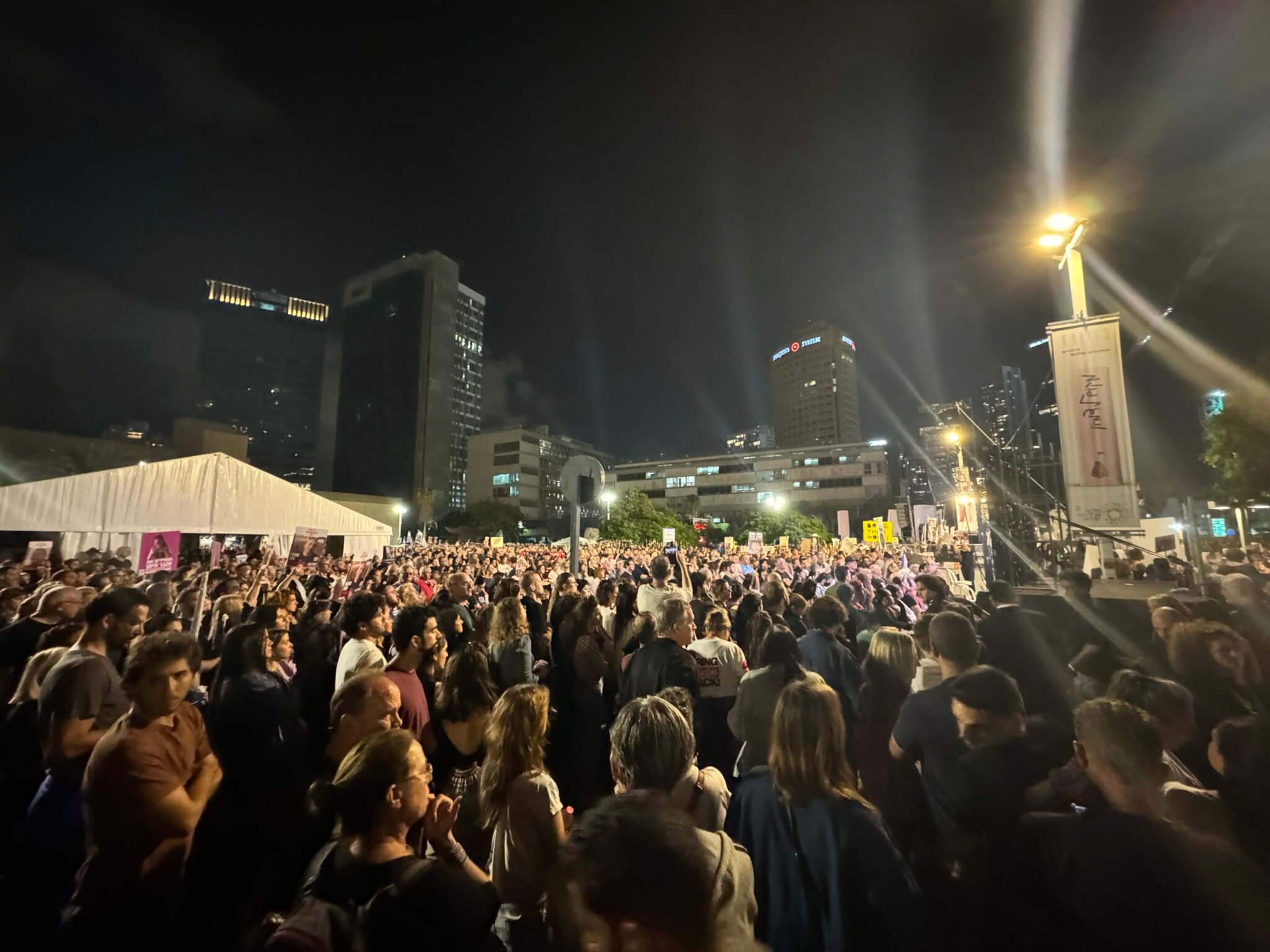
From November 13 to 20, I traveled with a rabbinic mission to Israel to support the 160,000 evacuees from northern and southern Israel who are not only displaced, but require physical and emotional support. Here are some reflections and photos from my trip.
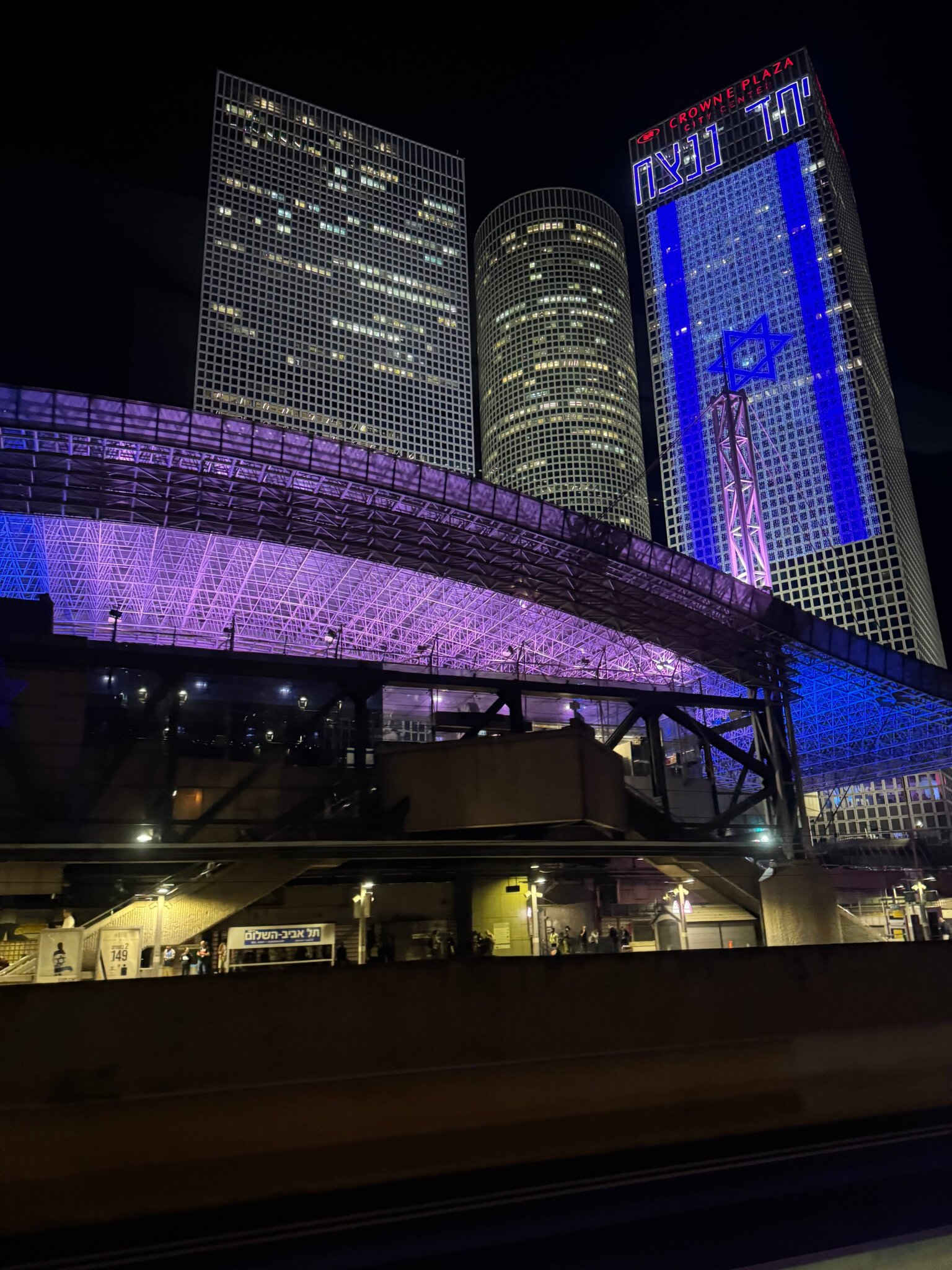
Rabbi Josh Franklin Talks Israel
Why I Went to Israel
“You turn my mourning into dancing,” cries the Psalmist (Psalms 30:11). Job, in his anguish, must have read this line and laughed as he quipped: “You turn my music into mourning” (Job 30:31). That was my Simchat Torah, that was Israel’s Simchat Torah, and it was our October 7. My chest strained under the burden of impossibly dense angst in the days following.
The onlooker may have wondered why events across the world could impact me so deeply from afar. Today, I learned Hebrew possesses an understanding of the strange stress dumbbell that rested on my chest. We say to a person in their grief, ani mishtatef b’tza’arecha. I join you in your pain. Or, put in biblical language, I join you in the meitzar, the narrow place (Psalm 91:8).
“Why would you go to Israel now?” my non-Jewish friends ask me. Here’s my answer: An Israeli is trapped in a pit, a priest comes walking by, the Israeli cries out, “I’m stuck,” and the priest says a blessing for him. A doctor comes by, and the Israeli calls again for help. The doctor writes a prescription and throws it in the pit. An American Jew walks by and the man calls out again for help. The American Jew jumps in the pit. “Why did you do that?” says the Israeli. “Now we’re both down here.”
The answer to a traditional version of this parable is that “I’ve been here before, and I know the way out.” But neither the American Jew nor the Israeli knows the way out. I just know that I need to join with them in their pain, and that perhaps our shared mourning will one day turn back into dancing.
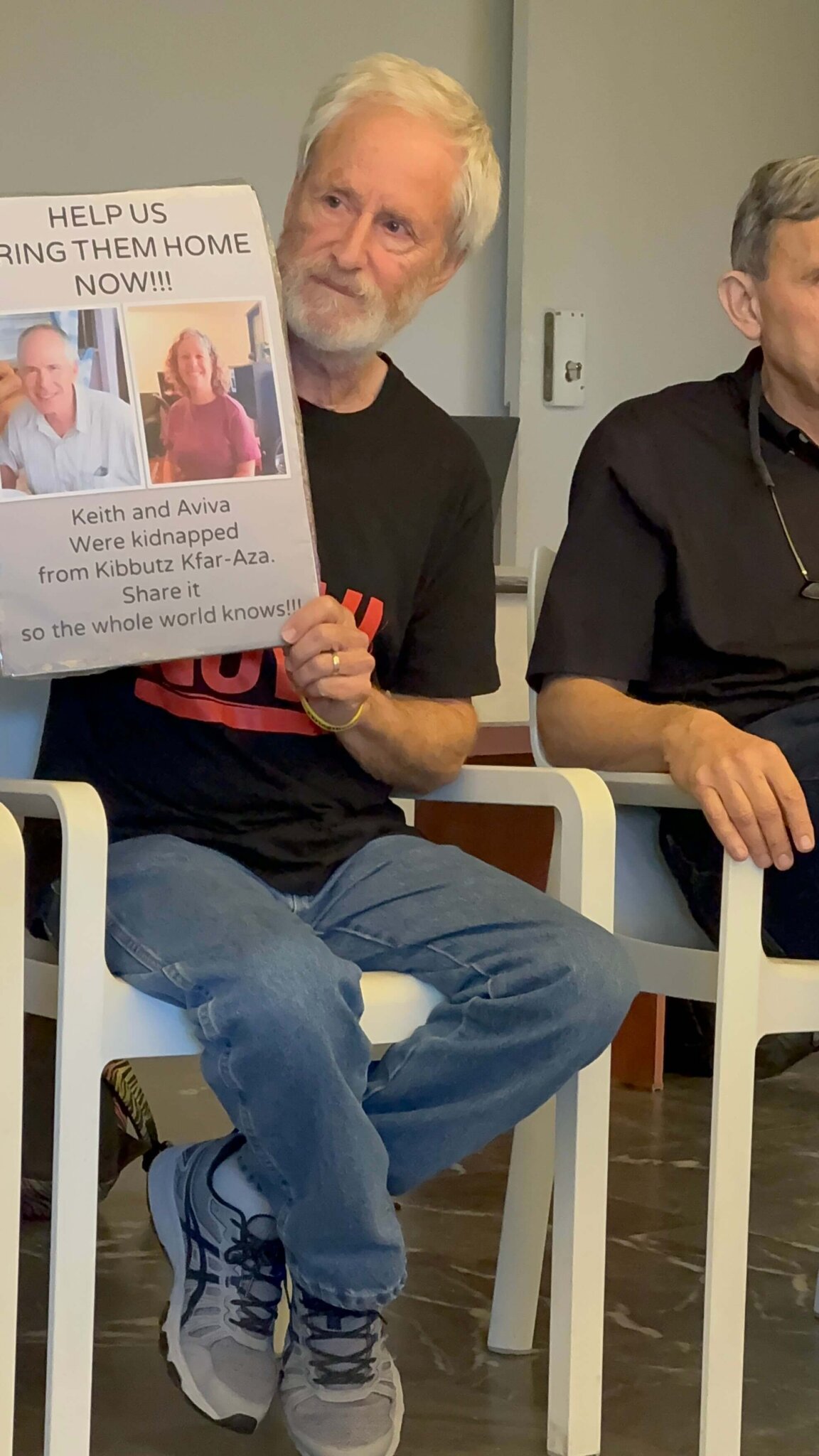
Gratitude Heals Our Wounds
I always talk about gratitude even in the face of adversity and loss. Baseball players who hit home runs typically look to the sky and thank God, but I’ve always said that they should thank God when they strike out. Gratitude offers us a tool for healing when the world is broken.
“Even though it all went wrong, I stand before the Lord of Song, with nothing on my tongue but Hallelujah,” writes Leonard Cohen. This is of course easier said than done. We need heroes of this mentality. Enter Avida from Beiri, who sheltered in his safe-house with his family when Hamas terrorists from Gaza came and took his wife of 32 years, his 15-year-old son and his right leg. A little over a month out, Avida professes a gratitude that it typically takes years of retrospect for people with trauma to develop.
“I am blessed,” he says. “My glass isn’t half full; it’s full.” He adds: “I’m grateful for my 32 years with my wife, and my 15 years with my son.” Not an ounce of hatred, not a whiff of despair, not even a questioning of why, only a perspective that his life is full.
Living Jewishly in the Face of Danger
I finally unearthed the root of my discomfort whenever someone urges me to “stay safe” upon learning I’m in Israel. As Kabbalat Shabbat unfurled at Beit Daniel in Tel Aviv, a symphony of ringtones chimed from people’s phones, initially striking me as rude. When the piercing sirens sang their dirge across the city, I grasped the gravity of the moment. A rocket was making its way across the sky towards Tel Aviv, and we had a mere 90 seconds to reach the mamad (bomb shelter). Remarkably, everyone moved with an eerie calm, like passengers boarding an airplane.
Inside the shelter, the children laughed and played, unmoved by the wailing alarm. Israelis have long mastered the art of thriving amidst turmoil, a skill that often eludes Americans fixated on the mantra of “safety first.” Many questioned my choice to visit Israel during these turbulent times. When safety becomes the paramount concern, it can eclipse our embracing a joyous and loving Jewish existence, causing us to not only shelter from danger, but also shun the vibrant tapestry of life itself.
We reconvened Shabbat as soon as it was safe, and it was as though nothing had happened. We resumed our gathering with a special blessing for six Israelis who had recently embraced Judaism as converts. Each of them cradled a Torah in their hands, and stood sheltered under the protection of a seemingly flimsy, but spiritually fortified chuppah. In that moment, the realization washed over me: Just as Hamas sought to extinguish the light of Judaism this Shabbat, here we were, weaving six new threads into the vibrant tapestry of Jewish existence.
I find myself surrounded in Israel by a people whose unwavering resilience in the face of terror and conflict imparts the invaluable lesson that life should be lived full tilt. Yes, we are conscious of our safety and take precautions, but it never obstructs our path to the joyous embrace of Jewish living.
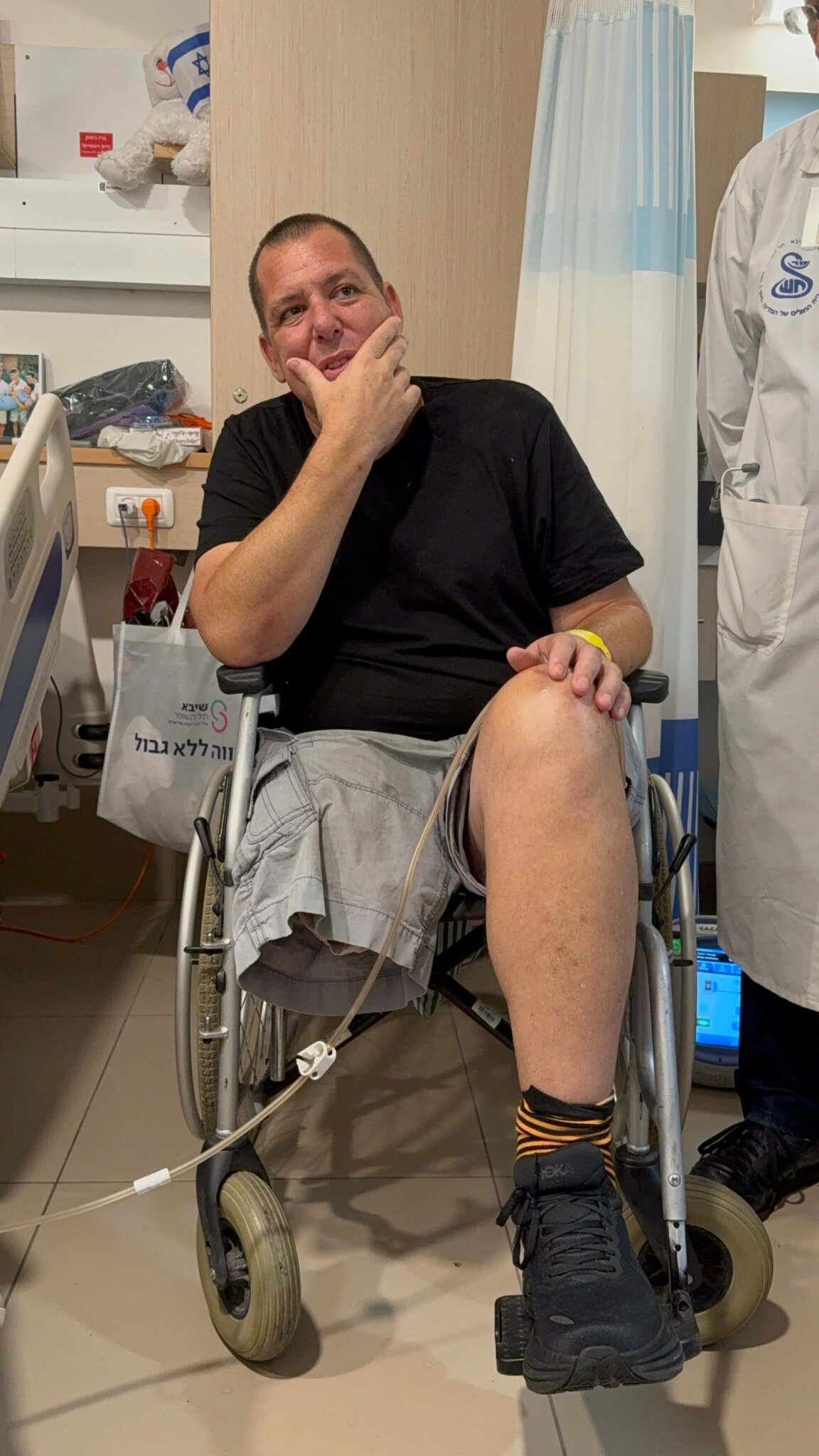
The Nightmare of Nightmares
Israelis who have kidnapped family members are living an unimaginable kind of nightmare so harrowing, it’s worse than death itself. One father of a 12-year-old girl thanked God that his daughter was murdered on October 7, because he couldn’t fathom the psychological, emotional and spiritual torment his daughter would have endured as a hostage in the pit of Gaza.
Last night, at a rally in Tel Aviv, I listened to parents and grandparents give quivering voice to what they imagined their children must be enduring as they lay bound in the lair of monsters. Loved ones trapped in a hell that makes the “lake of fire burning with brimstone” (Revelation 19:20) depicted by Christians seem like a vacation at Disneyland. Yoni Asher’s whole family — his wife, Doron, his mother-in-law, Efrat, his two children, Raz, 5, and Aviv, 2 — were tossed onto the flatbed of a pickup truck, and trafficked down to Gaza.
“For me,” he said, “I am at the gates of hell in my pain.” One grandmother looked at the forecast tomorrow and saw rain; she thought of her grandchildren’s feet being wet, how they we shivering in the cold, and all she wanted was to give them a blanket. I imagined what would happen if my children were kidnapped to Gaza. I would crash through the 30-foot concrete barricade, a transformed lunatic lacking all concern, focused on one task: bring them home!
Standing in the square, holding up a photo of his kidnapped family, I saw Lee Siegel, whose brother, Keith, and sister-in-law, Aviva, were snatched from their homes. He, his wife, Sheli, and his son, Gil, had told us their story a few days earlier, but this time, Lee was alone, standing by himself with a look of fading hope and abandonment. His face gaunt with agony, bereft of tears, he stood there staring blankly into the void.
I walked over, put my arms around him, and made sure that he wasn’t alone. He looked right through me; I had to remind him who I was, as his head was lost in the sea of unimaginable anguish. Ensuring he was not alone in that moment may have been the single most important thing I accomplished on this trip.
Awad Darwashe
I called out the name Awad Darwashe, and told his heroic story a week after the October 7 Massacre. An Israeli Arab medic, he refused to flee the Nova Party in the South when it was attacked by terrorists. He stayed behind to help those who were wounded, and it cost him his life. “He is our brother,” I said. Paraphrasing the Torah portion of the week, Bereshit, I reminded the community: “The bloods of our brothers cry out to us from the ground.”
The rabbis teach: why does it say “bloods” and not “blood?” In order to teach the magnitude of killing an individual. For whoever kills a person, kills every future child, grandchild and exponential growth of his family for eternity. The inverse is also true, and my brother Awad saved many worlds.
Today, I got to thank his uncle, Mohammed, who is also working to save the soul of Israel, and the lives of 260 evacuees from the villages on the border who are being housed at Givat Haviva. I pledged to him that the Jewish Center of the Hamptons would support the cost of an entire day of giving room and board to these evacuees. After the gift he and his family have given, and the sacrifice they have made, is it not the least we could do?
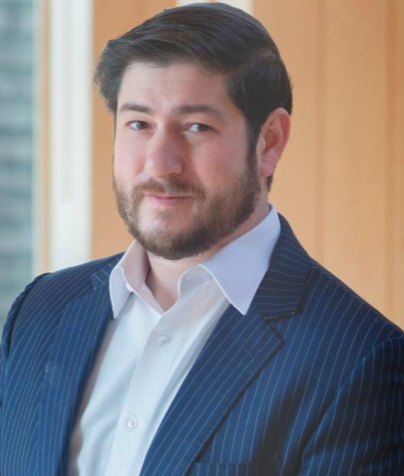
Rabbi Josh Franklin is the rabbi of the Jewish Center of the Hamptons in East Hampton. To learn more about the inclusive, post-denominational synagogue, visit jcoh.org.



